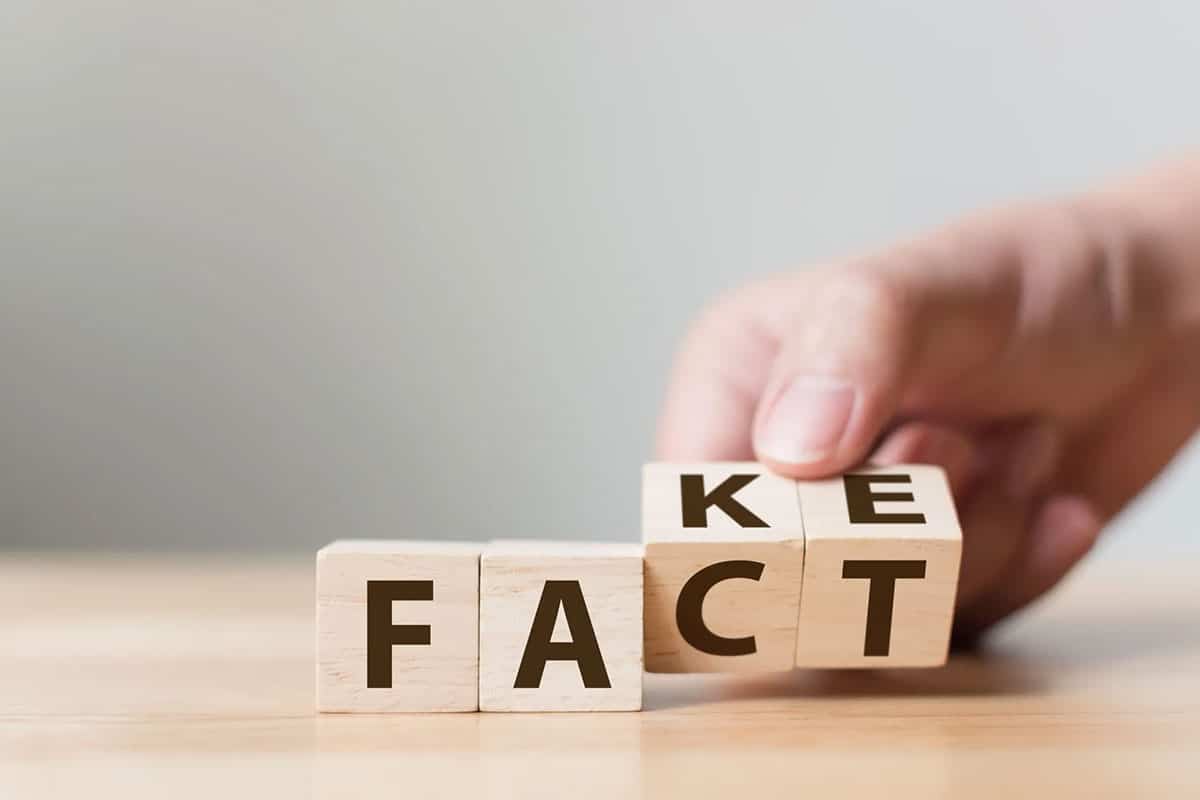Confused about nutrition? Wondering if the latest trend is fake or a fact?
There is so much information out there, and much of it is flawed, misinterpreted, or flat-out false. It can be too often a time difficult to identify and sift through these myths to find the real facts. For example, Does eating bread make you gain weight, especially if you eat it outside the hours of 12-8pm?
No! Weight gain and eating time are much more complex than this question leads us to believe. Nutrition myths such as these are everywhere, perpetuated by fad diets, or those who need a catchy message to get likes or web traffic, or those without proper training on nutrition education.
Why do nutrition myths exist?
Some examples of reasons relate to who is putting the nutrition information out there. Other reasons relate to the messages themselves, and how we share them. Evidence-based nutrition facts are not appealing or seductive; for example, “eat your fruits and vegetables.” This statement might be erroneously re-written as, “cure [insert disease here] by eating [insert vegetable here].” Such a statement may lead to fake news about the “powers” of eating a certain vegetable.
Let’s look at some common nutrition myths:
1. Myth: Carbohydrates cause weight gain.
Fact: No one nutrient, food, or food group causes weight gain.
Weight gain is complex and cannot be attributed to just one food or food group. In general, weight gain will result when we consume calories in excess of what our body needs to maintain body weight. However, there are other factors that affect body weight.
A diet for optimal health includes many foods with carbohydrates, which are our body’s preferred source of energy. When it comes to carbohydrates, consider the quality. Choose carbohydrates that offer other nutrition including fiber, vitamins, and minerals. Complex carbohydrates with fiber digest and absorb more slowly than simple carbohydrates. When consuming carbohydrates opt for foods such as: whole grains, fruit, vegetables, beans, and lentils.
2. Myth: Foods with gluten are unhealthy.
Fact: Only some people need to have a gluten-free diet.
Gluten is a group of proteins found in cereal grains such as wheat, barley, and rye. People who are medically diagnosed with celiac disease or non-celiac gluten sensitivity should avoid foods with gluten. Celiac disease is an autoimmune condition where eating gluten results in damage to the small intestine, a part of your gut. Non-celiac gluten sensitivity is an intolerance to gluten that results in similar symptoms to celiac disease. With both conditions, a gluten-free diet will help manage symptoms.
For a person without either of these conditions, foods with gluten can be included as part of an overall healthy diet.
3. Myth: A vegetarian or vegan diet does not provide enough protein.
Fact: Many vegetarian foods have protein. Vegetarians and vegans can meet protein needs through careful planning.
There are many types of vegetarianism. Some vegetarians eat eggs, dairy and/or fish. Other vegetarians choose mostly or all plant foods [vegans].
Plant based sources of protein include: beans, lentils, soy products (tofu, edamame, tempeh), nuts, and seeds. Whole grains also have protein, although they wouldn’t be considered a source of protein or a protein food.
Vegetarians should choose sources of protein at each meal and snack. Please make sure to check with your healthcare team if you need help or want to learn about healthy protein menu options.
4. Myth: Snacking is unhealthy.
Fact: Snacking can be part of healthy eating, even when weight loss is a goal.
Depending on our needs and a meal’s size and composition, a meal with carbohydrates, protein, and fat will keep us full for an average of 3-4 hours. In general, most people have a greater time window than 3-4 hours in between meals.
Snacking can help curb hunger while providing fuel to have energy throughout the day. Choose a balanced snack containing protein, for example peanut butter and apple slices, a hard-boiled egg and berries, roasted edamame and carrot sticks, or hummus and celery sticks.
A snack made up of just carbohydrates, like pretzels, will be digested quickly. This may result in the quick return of hunger and could potentially lead to overeating at the next meal or snack. A balanced snack made with protein, carbohydrates, and fiber digests more slowly, keeping us full for longer.
5. Myth: Juicing or cleansing is required to “detox” your body.
Fact: Our body has natural mechanisms through which to detox.
Juices or cleanses claim to aid weight loss, improve skin health, and detox the body by removing toxins, etc. However, there is no one food or diet that can deliver on these promises. In fact, some cleanses, diets, and supplements may be harmful. Talk to your doctor and registered dietitian before taking supplements or following a diet.
We do not need specific foods, drinks, or diets to detox because our body does that for us. Specifically, our liver and kidneys remove waste from our bodies while helping maintain hydration and process medicine and alcohol, among other functions. The lungs and skin are also involved in detoxification.
It is often confusing to sort nutrition facts from myths. The best way of eating to promote overall health is a whole diet, meaning it is rich in vegetables, fruit, legumes, whole grains, and lean protein. Keep an open mind and maintain a healthy dose of skepticism. If in doubt, ask your healthcare nutrition specialist. P.S. Look out for our next blog on nutrition claims and tips to avoid getting trapped.





